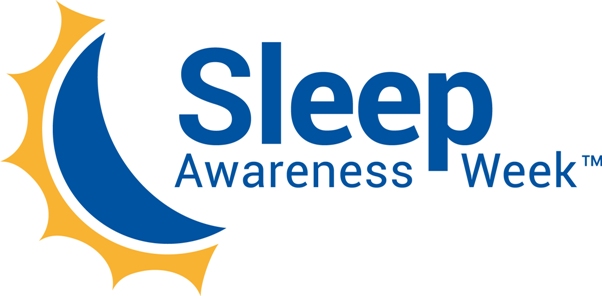
Sleep Awareness Week: What’s keeping you awake — including perhaps this computer or smart phone if used just before turning in
Courtesy, Harbin Clinic Sleep Center.
With our overloaded schedules, never-ending to-do lists, and incessant juggling of too many things at once, it’s no wonder we often feel like there aren’t enough hours in a day. Though we usually still find a way to get everything done, it is often at the expense of not getting enough sleep. March 2-8 is Sleep Awareness Week, which provides a great opportunity to refocus on making sleep a priority for the sake of better health.
Getting plenty of sleep is a critical part of living a healthy life. Sleep has important restorative and energizing powers that help fuel our daily activities. It helps repair damaged cells, support the immune system, boost metabolism and sharpens memory, just to name a few benefits.
But in today’s technologically advanced world, people are connected via cell phones, computers, tablets and other devices 24 hours a day, seven days a week, 365 days per year. The National Sleep Foundation reports that 95 percent of people use some type of computer, video game or cell phone at least a few nights per week within the hour before going to bed. Constant connectivity and the consequent bombardment of information wreaks havoc on sleep cycles, making it difficult to fall asleep or stay asleep.
Being fully wired certainly has its advantages but it can also cause sleep deprivation over time, which can lead to health troubles. Not getting adequate sleep can result in short-term problems like fatigue, irritability or an inability to focus and longer-term health concerns such as diabetes, high blood pressure and heart disease.
 Harbin Clinic Sleep Center offers the following tips for ensuring that technology doesn’t stand in your way of getting a good night’s sleep.
Harbin Clinic Sleep Center offers the following tips for ensuring that technology doesn’t stand in your way of getting a good night’s sleep.
Unwind before bedtime: Persistent cognitive stimulation from the use of technology keeps your brain firing on all cylinders rather than helping it to wind down in the evenings. Set a goal to turn off all devices 30 minutes to one hour prior to going to bed to help your mind relax and your body settle into a restful state. Also, make it a rule that your bedroom will be a strict no-tech zone.
Say no to the glow: Electronic devices emit small amounts of light that pass through the retina into part of the brain that controls sleep activities. This light interrupts the release of melatonin, a hormone that controls sleeping and waking cycles. Resist the urge to check email or social media channels while trying to go to sleep. The brightness of the phone or computer screen will make you feel less tired (not to mention strain your eyes!) and activate the brain, robbing you of much-needed sleep.
Power down your stress level: Being plugged in means we are always accessible and are, therefore, expected to respond at all hours to work demands, obligations in our personal lives and everything in between. We simply can’t shut it off. As we begin to feel stressed, the body releases a stress hormone called cortisol or the “fight or flight” hormone, which prepares the body for action – NOT sleep. Instead of reaching for your phone or laptop, try engaging in a relaxing activity before bedtime like reading or writing in a journal.
The next step: If you need help establishing healthy sleep habits or are concerned that you may have a sleep disorder, Harbin Clinic Sleep Center can help. Call 706.236.6475 to make an appointment or visit harbinclinic.com/sleep-disorders for more information.
Editor's picks
- Casino En Ligne Retrait Immédiat
- Meilleur Casino En Ligne
- Siti Di Scommesse
- Uk Sports Betting Sites Not On Gamstop
- Online Casino Sites UK
- Online Betting Sites Not On Gamstop
- Migliori Casino Non Aams
- Casino Online Migliori
- Gambling Sites Not On Gamstop
- Non Gamstop Casino Sites UK
- Meilleur Casino En Ligne Français
- Casino En Ligne Bonus Sans Dépôt
- Meilleur Casino En Ligne Français
- Tous Les Sites De Paris Sportifs Belgique
- Meilleur Casino En Ligne Belgique
- Siti Scommesse Non Aams Sicuri
- App Scommesse Sportive
- Meilleur Site Pour Jouer Au Poker
- Tennis Paris Sportif
- Meilleur Site De Paris Sportif International
- Sweet Bonanza Fruits Avis
- Paris Sportif Ufc
- ライブカジノ
- 銀行出金が早いオンカジ
- ライブカジノ
- 암호화폐 베팅사이트
- лучшие казино Украины
- Paris Sportif Crypto
- Casino En Ligne 2026
- Nouveau Site De Casino En Ligne
- Migliori App Casino Online
- I Migliori Casino Non Aams
- 스포츠토토
- Trang Cá độ Bóng đá
- Casino En Ligne Argent Réel France
- Nouveau Casino En Ligne 2026
- Meilleurs Casino En Ligne
- Siti Casino Non Aams
- Casino Aams Nuovi
- Casino En Ligne Le Plus Payant




